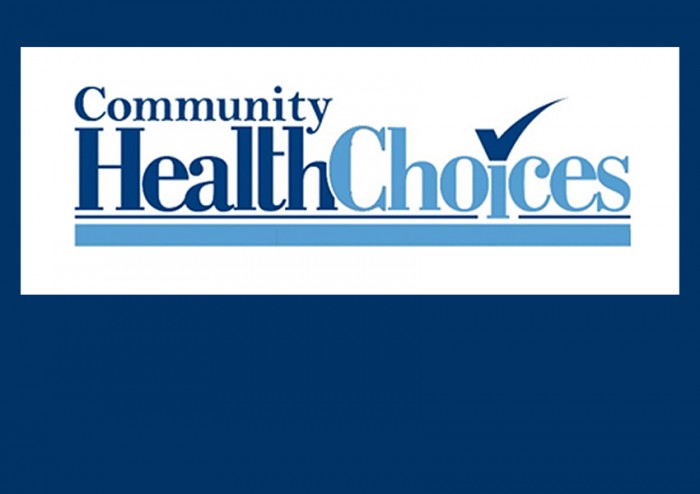RCPA Financial Update Webinar July 9
Reach Out to US Senators Casey and Toomey: Impact of Unemployment Compensation on Nonprofits in PA
RCPA has been collaborating with the Pennsylvania Association for Nonprofit Organization (PANO) on a few issues over the past several weeks. One of those issues is how unemployment compensation is affecting RCPA members and other nonprofits. The Federal Government has legislation that will help alleviate nonprofit organizations’ concerns around the unemployment compensation issue. PANO has sent out the following alert to its nonprofit members; RCPA is passing along the alert because we know some of our members are affected by this issue.
| The bipartisan Protecting Nonprofits from Catastrophic Cash Flow Strain Act (S. 4001) solves half of the problems nonprofits are facing with the enormous costs of reimbursing their states for benefits paid to laid off or furloughed employees. Specifically, the bill would correct the Labor Department’s interpretation that reimbursing employers must pay 100% of unemployment claims up front and then wait to get repaid 50% later. The bill currently has 16 cosponsors, evenly split between the political parties.
ACTION ITEM: Reach out to Senator Casey (D) and Senator Toomey (R) and urge them to co-sponsor S. 4001 and demand a vote this week before the Senate leaves for its July 4 break. It’s only half the unemployment insurance (UI) challenge for reimbursing employers, but it’s the most time-sensitive. Contacting your Senators is easy. Simply email or tweet this message to each: “@[SenatorTwitterHandle], #nonprofits in our state must have immediate relief from catastrophic cash flow strains caused by flawed Labor Department guidance. Cosponsor and insist on Senate passage this week of the bipartisan S.4001. #Relief4Charities” |
For more information, read this article in today’s Nonprofit Quarterly: Act Now to Protect Nonprofits from Government-Induced Cash-Flow Strain.
Questions, please contact Jack Phillips.
Coping with Covid-related Grief and Loss: July 22 Members Only Webinar
OMHSAS Outlines Status of Provider APAs
In a recent communication to RCPA and the stakeholder community, OMHSAS Deputy Secretary Kristen Houser was pleased to share the current framework for the provider Alternative Pay Arrangements (APA) that will be extended until September 30, 2020. Deputy Secretary Houser outlined the expectations that included:
- COVID-specific APAs will remain available as an option through September 30, 2020.
- No less than 30-day notice will be given to providers to clarify if the APAs will be ending on September 30 or continue to be an option for an additional quarter, through December 31, 2020, depending on the need due to the impact of COVID-19.
- All APAs should now include a reconciliation to ensure no overpayments are made as providers begin to open and offer more services. Providers who are open and billing at 100% do not have the need to be included in a COVID-19 APA.
Deputy Secretary Houser stated “We understand the importance of maintaining regional agreements and oversight to allow for flexibility to meet a range of needs across the Commonwealth but also recognize that setting a statewide expectation that is consistently communicated across regions, providers and associations will help reduce confusion and subsequent questions. OMHSAS is sharing this information with provider associations and stakeholders to help alleviate any misunderstanding/miscommunication going forward, and we ask that this information be posted on BH-MCO and Primary Contractor or appropriate county websites in a location that is easy to reference. This will ensure that anyone with questions about the duration or expectations of notification of an end date will find the same information there.”
If you have additional questions, please contact your RCPA Policy Director.
Gov. Wolf: Masks are Mandatory in Pennsylvania Businesses
Transition Plan to Phase Out Temporary Changes to the Community HealthChoices 1915(c) Waiver
Note: This transition plan is intended to be used in conjunction with the April 30, 2020 Temporary Changes to the Community HealthChoices 1915(c) Waiver- (Revised) Guidance. That guidance, attached to this email, contains complete descriptions of the temporary changes and guidelines for implementation.
The Centers for Medicare & Medicaid Services (CMS) approved temporary changes to the Community HealthChoices (CHC) waiver beginning March 6, 2020 in response to the COVID-19 pandemic. Approval of these changes is covered under Appendix K, Emergency Preparedness and Response, which states may use during emergency situations to request amendments to their approved waivers. These changes addressed potential staffing shortages and the need for service provision not included in approved service descriptions to ensure participant health and safety needs could be accommodated for the duration of the COVID-19 statewide emergency. As described in the Temporary Changes to the CHC Waiver (Revised) Guidance, the changes were not intended to apply to all participants nor to be considered across-the-board changes that must be implemented for each participant. These flexibilities were to be evaluated on a case-by-case basis in coordination with the CHC Managed Care Organizations (MCOs).
As we begin to ease restrictions on work and on social interactions, the temporary waiver changes can also be phased out, provided participants can be safely served and providers and service coordinators are taking proper precautions. The attached transition plan provides guidance to the CHC-MCOs on phasing out the temporary waiver flexibilities. The guidance is intended to be implemented at the county level as each county moves through the red, yellow and green phases of the Governor’s phased reopening plan for Pennsylvania.
If you have questions about the information in the attached transition plan, please contact the CHC-MCOs for guidance on implementation.
- Transition Plan.CHC 6.25.2020_FINAL
- Temporary Changes to the CHC 1915(c) Waiver.Revised 4.30.2020.Listserv
A listserv has been established for ongoing updates on the CHC program. It is titled OLTL-COMMUNITY-HEALTHCHOICES, please visit the ListServ Archives page at http://listserv.dpw.state.pa.us to update or register your email address.
Please share this email with other members of your organization as appropriate. Also, it is imperative that you notify the Office of Long-Term Living for changes that would affect your provider file, such as addresses and telephone numbers. Mail to/pay to addresses, email addresses, and phone numbers may be updated electronically through ePEAP, which can be accessed through the PROMISe™ provider portal. For any other provider file changes please notify the Bureau of Fee for Service Programs Enrollment and Certification Section at 1-800-932-0939 Option #1.
Webinar 7/9: Successfully Engaging Older Adults and Adults with Disabilities via Technology
Webinar on Thursday, July 9 at 1:00 pm – 2:00 pm ET
Register for the webinar.
Across the country, community-based organizations are responding to the needs of older adults and adults with disabilities by expanding options for virtual programming and service delivery. Virtual offerings can promote service continuity in lieu of in-person interactions, as well as foster social connectedness.
Join ACL and other national stakeholders for a webinar highlighting programs, best practices, and tips for creating communities of learning and engagement via technology. Presenters will address marketing/outreach, barriers to virtual participation, strategies for holding interactive and inclusive conversations, and more.
This webinar will be recorded and posted on ACL’s COVID-19 web page.
Presenters: Ryan Elza, AARP Foundation; Stephen Ewell, Consumer Technology Association (CTA) Foundation; Thomas Kamber, Older Adults Technology Services (OATS); Susan Stiles, National Council on Aging
Contact Kristie Kulinski with registration questions.
















